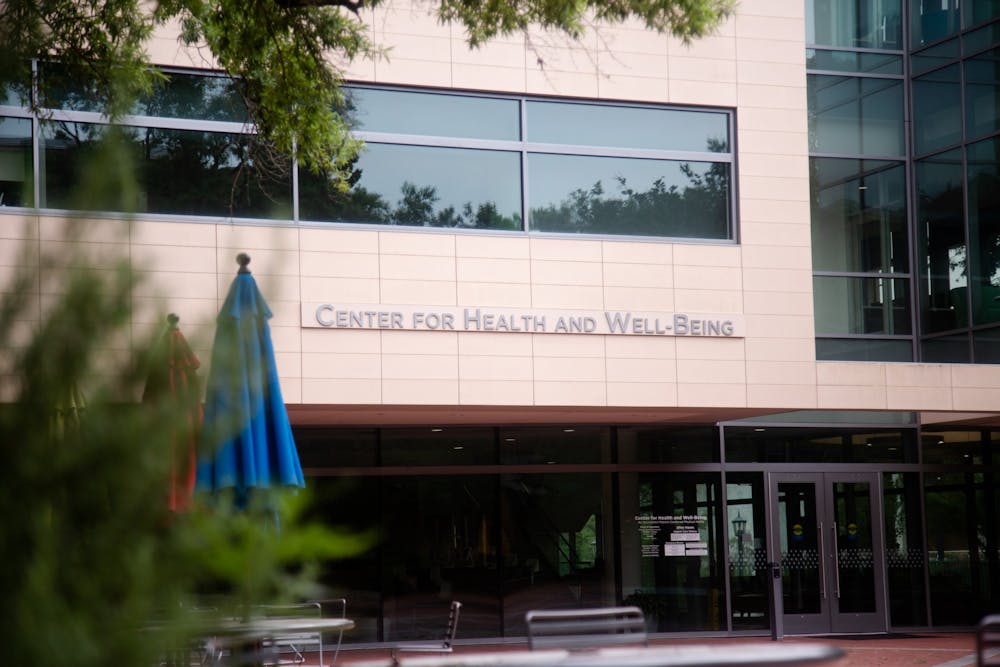Recent mass shootings in Buffalo, New York and Uvalde, Texas, have not only sparked a number of rallies in Columbia, but have also brought on a new wave of emotions for students. The coverage of the tragedies can make it difficult for students to understand their feelings and to take care of their mental well-being.
Nancy Padsala, a December 2021 graduate of USC, said that when she heard about the death of 19 students and two teachers at Robb Elementary School in Uvalde, she felt upset.
“It was really painful to see all those kids getting shot and really, really disappointing,” Padsala said.
Jennifer Cross, a licensed professional counselor at the Health Services Center, said that although everyone processes tragic events differently, this type of reaction is common among the students she sees.
“A lot of times people are just feeling really sad. They're feeling really overwhelmed,” Cross said. “And I think another common experience is feeling a sense of helplessness. Like there's not really anything that they can do about what's going on”
Cross said that the first step in confronting these emotions is to “acknowledge something bad happened.”
“It's okay to recognize that you're having a response to it, whatever that response may be,” Cross said.
According to Sterling Watson, the assistant director of training at the Health Services Center, these responses can vary greatly based on a student's culture and perspective. Even students who don’t seem distressed could be significantly impacted.
“By not investing emotionally in what it is that they're witnessing ... so that they can continue to do what it is that they need to do with regards to school, education, socializing," Watson said."I will say that it does impact them."
Cross said that the next way for students to reduce risks of mental stress is taking time away from coverage of traumatic events. She said that a 24/7 stream of information can be difficult for people of any age.
“There's so much happening at any point in time, it's hard to keep up with it all. And so we do have to take very intentional breaks from the content that we're ingesting, as part of just restoring some degree of balance as best as we can,” Cross said.
Cross said that it is also important that students keep in mind that there are still positives in the world and actions they do have control over.
"There are still good things that happen and good people out there," Cross said.
During the summer, Watson said that even when students are more limited in their ability to talk with people than they would be in a campus setting, students still have a chance to make a connection and engage in meaningful discussions at home.
“I think that the summer often influence folks to be where they're at, you know, maybe again, with family, maybe with friends, where they could talk about it, they could engage with it,” Watson said.
But according to Cross, to protect everyone's mental health, it is also important to be checking in on the friends and family members you go to for support as stressful news can be impactful for everyone.
"These times, we do have to be very considerate about everybody else's well-being and not wanting to add any additional stressors while also getting our needs met through our support system,” Cross said.
Health Services also provides resources for students who may be struggling to get the support they need. For students not enrolled during the summer or who live out of state during the break, Cross suggests they utilize health services’ therapy assisted online program which provides online modules that teach coping skills and mental health care.
Meanwhile, summer students have access to group counseling as well as triage counseling where they can meet with a counselor quickly for immediate concerns. Watson said it is especially important that students have an outlet to talk through their emotions.
“It becomes really important for us to reach out to somebody, to talk to somebody, talk to a professional, to really begin to process the magnitude of emotions that persons might be experiencing,” Watson said. “Do something to kind of let go of some of that.”

